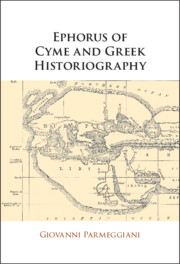This article offers a comparative analysis of the historiographical implications of state conflict and expansion in two key regions of ancient Afro-Eurasia, the Mediterranean Basin and East Asia. The Mediterranean-wide conflict known as the Punic Wars, and the protracted struggle between Han China and her militarized steppe nomadic neighbours in a theatre that spanned much of eastern Inner Eurasia, helped shape the direction of subsequent world history. These conflicts also shaped the methodology and approach of three historians in these two regions: Polybius, Diodorus, and Sima Qian. All three wove detailed descriptions of these processes into complex narratives that synthesized events into an organic whole. The result was a universal conception of history that added up to something much more than a mere recounting of events.
